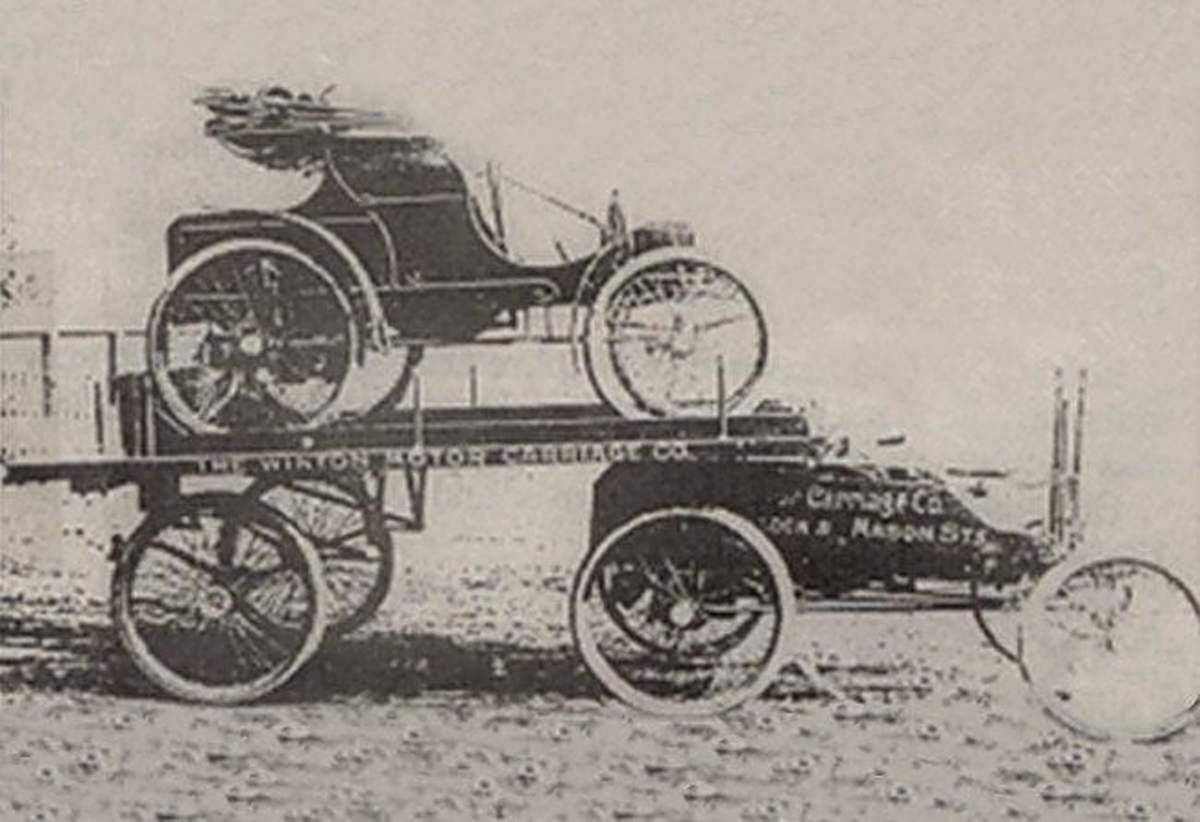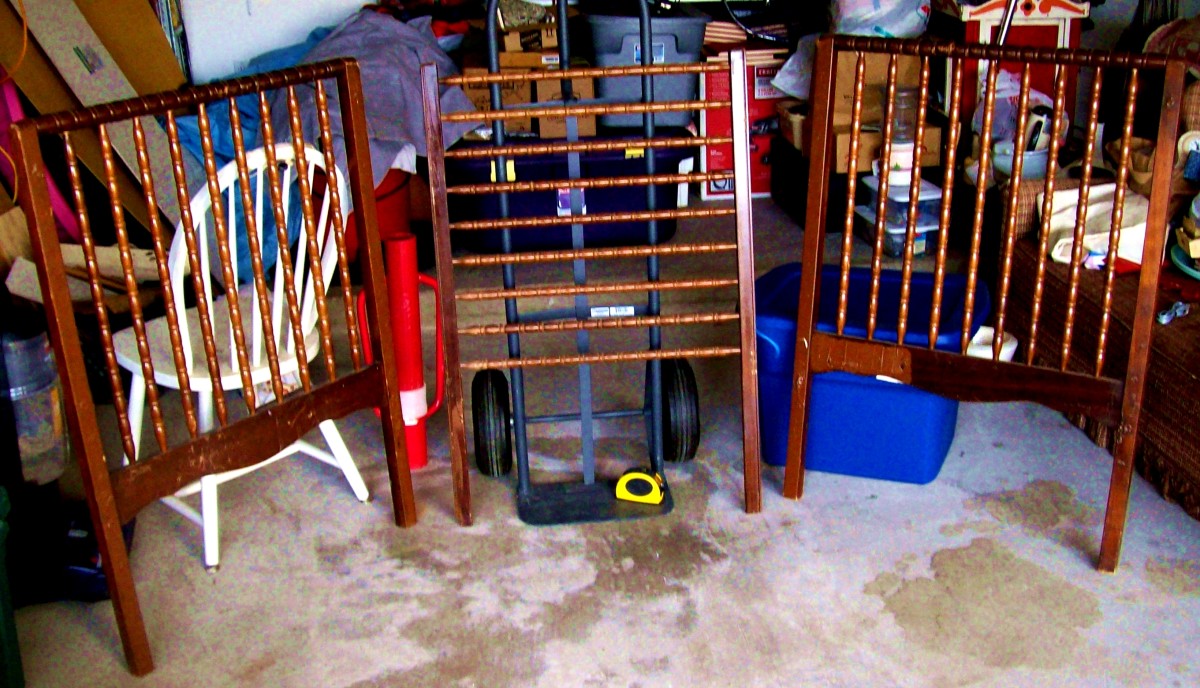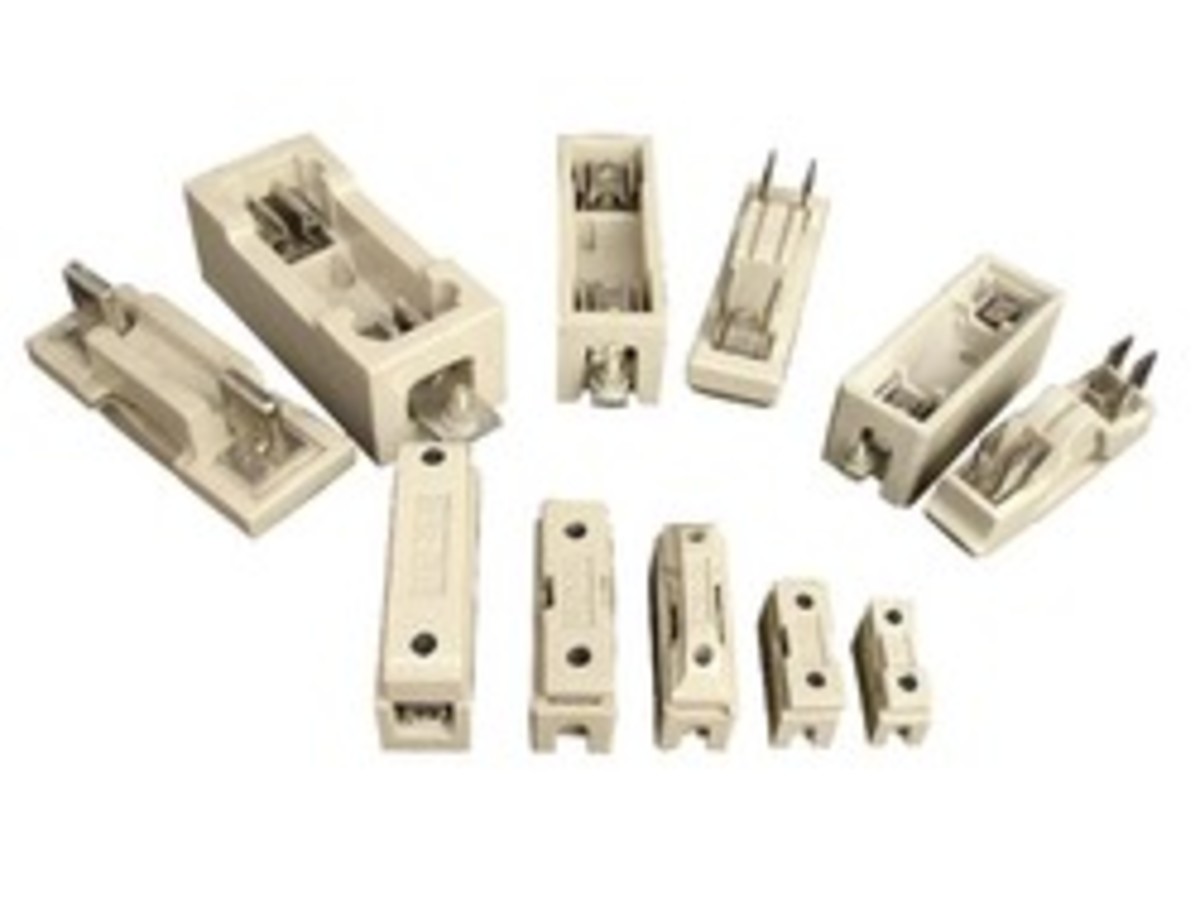Warehouse Carts, material handling equipment
Warehouse Carts, an introduction
Warehouse carts are a form of material handling equipment used to move product from one place to another in a warehouse or a manufacturing environment. They come in many different shapes and sizes. From small dollies with capacities of a few hundred pounds to enormous trailers with capacities in excess of a hundred tons, warehouse carts can be engineered for any application. Warehouse carts come in many different types like platform carts, shelf carts, tow trailers, specialty carts, order picker carts, and special engineered to order trucks. Each type of cart has advantages and disadvantages that are dependent upon the material handling application that it will be used in.
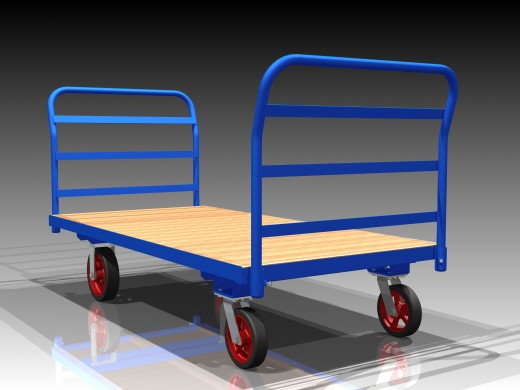
Platform Carts
The platform cart, in its most basic form, is a platform with casters attached to the underside. They are commonly called platform trucks and flatbed trucks. The platform truck is the most common of all warehouse carts. Their simplicity allow them to be used for many different applications.
The platform truck can be constructed out of many different materials. Steel, wood and aluminum are commonly used. Each material has characteristics that make it suitable for different applications. Steel is strong and economical, wood offers protection to the load and generates less noise, while aluminum is light weight and corrosion resistant.
The running gear can be mounted in different patterns allowing the truck to handle differently. The most common pattern is the traditional two swivels at the handle end and two rigid casters at the opposite end. This setup is easy to control. A variation of this traditional setup is to replace the rigid casters with larger load wheels. The benefit of this setup is less force required to push especially on trucks with higher load capacity. Another beneficial variation is the tilt type with rigid or load wheels at the trucks midpoint and swivel casters located at each end. This running gear setup allows the truck to turn about its own center point and can be turned around in the envelope of its own diagonal.
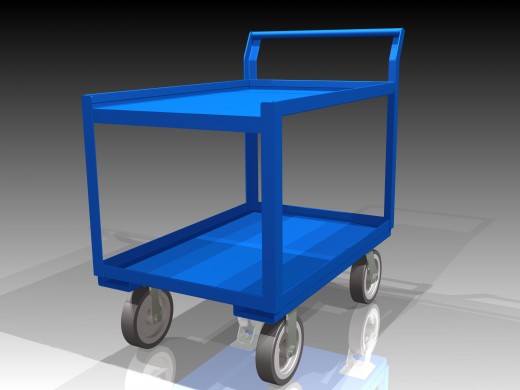
Shelf Carts
Shelf carts are basically platform carts with additional platforms or shelves mounted above the base platform. These shelves are supported by corner uprights. The nature of the truck makes it a good candidate for handling small light weight product.
There are two main advantages to using a shelf truck. This type of cart is conducive to ergonomic material handling due to its increased height of the shelves. The second is the increased platform area per footprint area. The effective platform area is increased by a factor of the number of shelves. For instance if the base platform size is 600 square inches and there are 3 total shelves then the truck has a load carrying platform area of 1,800 square inches and a footprint area of 600 square inches.
The shelf carts are limited in that the bottom shelves can not hold product taller than the clearance in between those shelves. While the upper shelf does not have this limitation, it is advisable not to load this shelf with tall product as the elevated center of gravity may cause the truck and/or the load to become unstable, especially if only the top self is loaded.
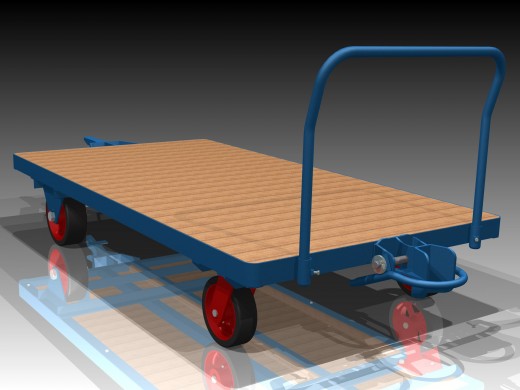
Tow carts
Towable warehouse carts, also called trailers, are similar in nature to the platform carts in that they both start off with a simple platform. They differ in that they are also equipped with a coupler or couplers which serve as a means to couple trailers together and/or to a tow vehicle. This allows more product to be delivered at one time. These trailers have running gear that is of more substantial nature than the typical platform truck to allow them to be towed at higher speeds over longer distances and at greater frequency.
Trailers come in many different variations. Caster steer trailers are basically reinforced platform trucks with couplers. Fifth wheel steer trailers pivot around a single pivot point that allows it to steer. A four wheel steer trailers, also called a quad steer or a double fifth wheel trailers, have a fifth wheel at each end connected by a linkage to facilitate both ends turning. An automotive steer trailer, also known as a knuckle steer trailer or link steer trailer, has linkage that connects the wheels to the tongue assembly which allows the wheels to rotate and stay under the load. This type of steering can be applied at each end of the trailer and connected by linkage to facilitate both ends turning.
There is not enough time in this article to go into all of the principles associated with towable warehouse carts. If you are interested in this subject then you may want to peruse the award winning white paper entitled "Design principles of in-plant trailers" which can be found at www.hamiltoncaster.com.
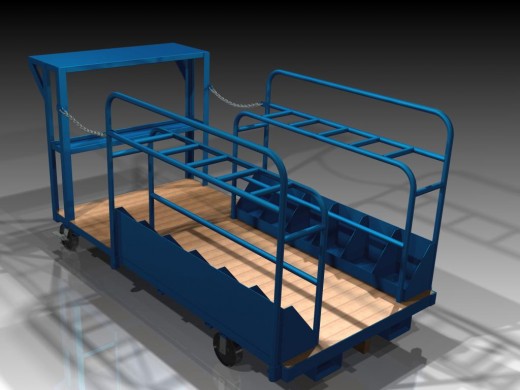
Order Picker Carts
Another type of warehouse cart is the order picker cart. This type of cart is picked up by an order picker forklift and clamped to secure it. The cart and the operator are both lifted into the air and throughout the warehouse in order to pick product from containers throughout the warehouse. Once they are full the operator can deposit them into a staging area until they are needed at their final destination. These warehouse carts can also be fitted with couplers allowing a train of them to be pulled throughout the factory.
This type of warehouse cart is commonly customized for the type of material they will be carrying. From additional racks to shelves and compartments, the sky is the limit when it comes to customizations.
Specialty Carts
Another branch of the warehouse cart family is the specialty carts. They are designed specifically to move one type of material. Some examples are cylinder carts, drum carts, appliance trucks, bar handling carts, A-frame cart, granite counter top cart, and many more. If you work with a hard to handle material, odds are that someone has already designed one to handle it.
If you have a special application that requires engineered to order material handling equipment, then there are a handful of companies out there that specialize in fulfilling this need. To see some examples of these types of trucks and trailers, follow this link to Hamilton Caster & Manufacturing Company's engineered to order truck photo gallery.
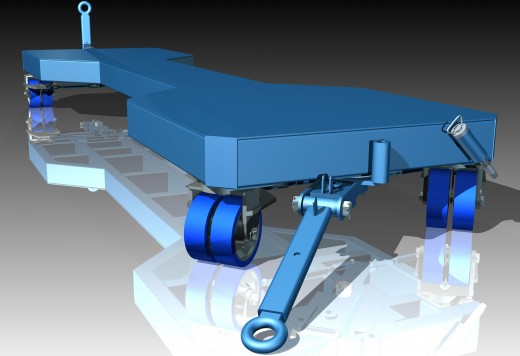

Squidoo article about warehouse carts
- Order Picking Warehouse Carts
Warehouse carts are used for order picking and staging in a warehouse environment. Carts are moved from location to location while pulling parts to fulfill orders. Warehouse carts come in many different types, shapes and sizes. From eleva carts, towa
Trade organizations that cover warehouse carts
- Material Handling Industry of America
A leading trade association for the material handling and logistics industry - The Industry That Makes the Supply Chain Work. - Home - Material Handling Equipment Distributors Association
The Material Handling Equipment Distributors Association is a not-for-profit trade association dedicated to promoting material handling industry excellence through educational seminars, industry reports and discounted services and programs.



